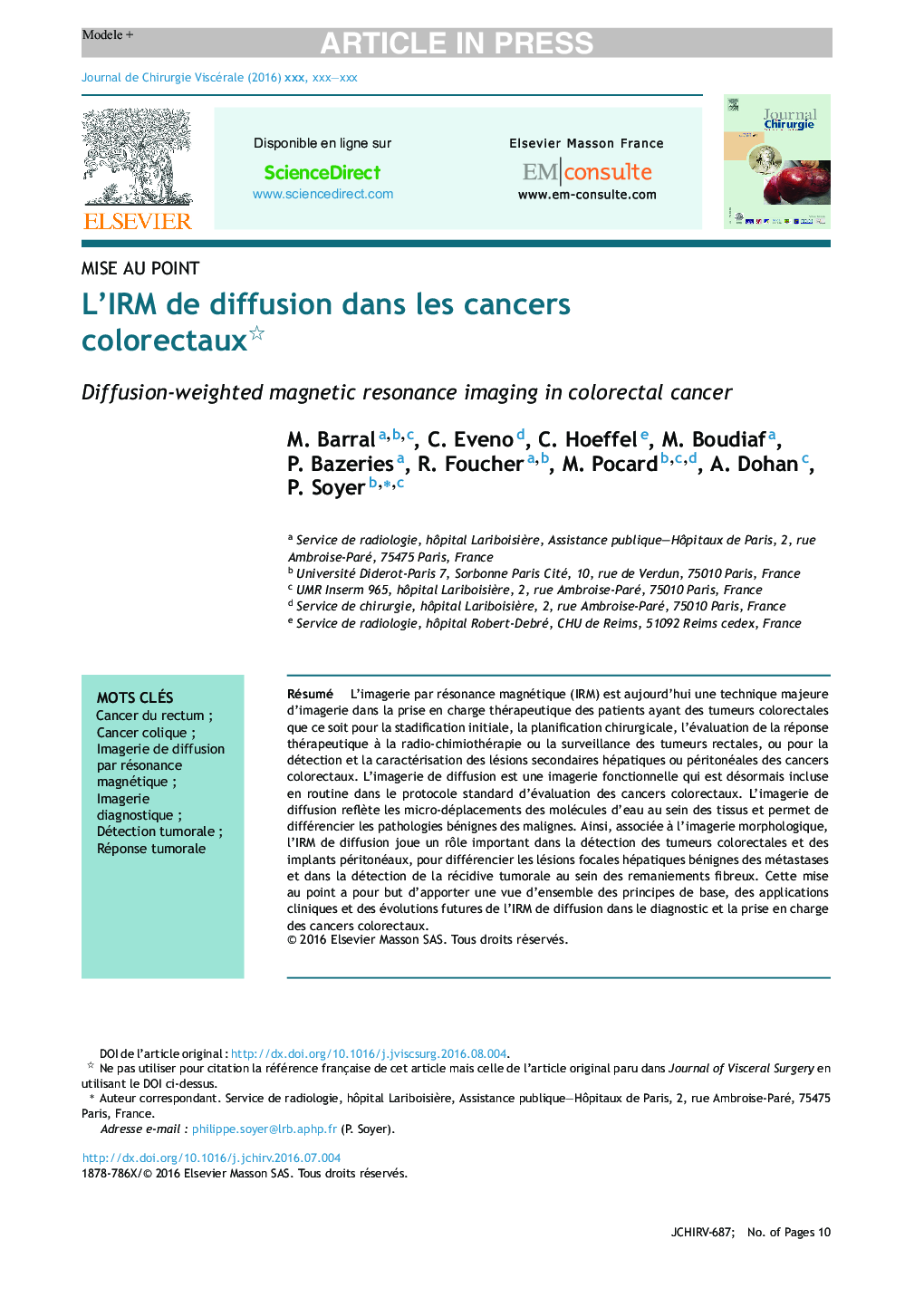| Article ID | Journal | Published Year | Pages | File Type |
|---|---|---|---|---|
| 5660270 | Journal de Chirurgie Viscérale | 2016 | 10 Pages |
Abstract
Magnetic resonance imaging (MRI) now plays a major role in patients with colorectal cancer regarding tumor staging, surgical planning, therapeutic decision, assessment of tumor response to chemoradiotherapy and surveillance of rectal cancer, and detection and characterization of liver or peritoneal metastasis of colorectal cancers. Diffusion-weighted MRI (DW-MRI) is a functional imaging tool that is now part of the standard MRI protocol for the investigation of patients with colorectal cancer. DW-MRI reflects micro-displacements of water molecules in tissues and conveys high degrees of accuracy to discriminate between benign and malignant colorectal conditions. Thus, in addition to morphological imaging, DW-MRI has an important role to accurately detect colorectal neoplasms and peritoneal implants, to differentiate benign focal liver lesions from metastases and to detect tumor relapse within fibrotic changes. This review provides a comprehensive overview of basic principles, clinical applications and future trends of DW-MRI in colorectal cancers.
Keywords
Related Topics
Health Sciences
Medicine and Dentistry
Gastroenterology
Authors
M. Barral, C. Eveno, C. Hoeffel, M. Boudiaf, P. Bazeries, R. Foucher, M. Pocard, A. Dohan, P. Soyer,
